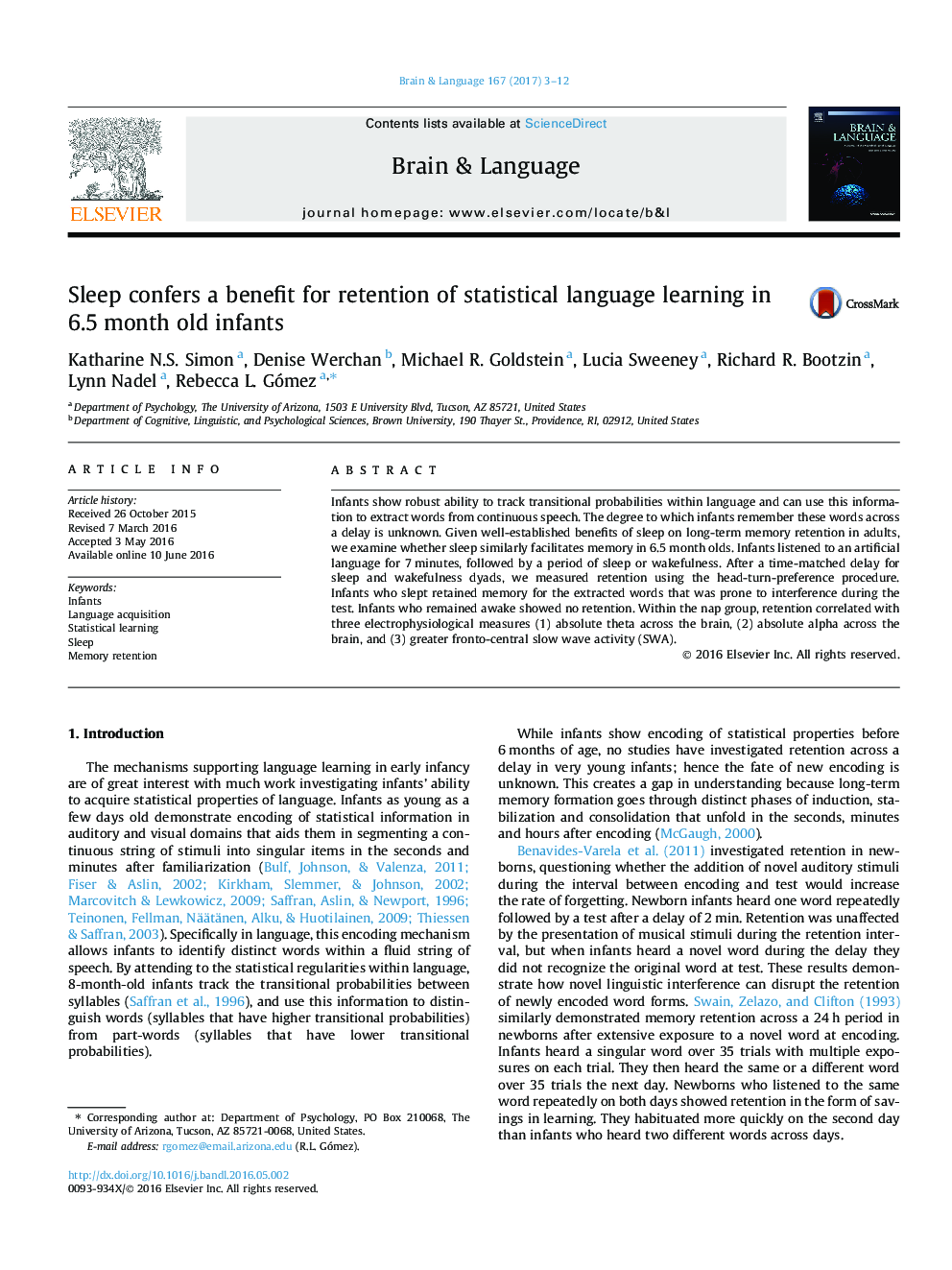| Article ID | Journal | Published Year | Pages | File Type |
|---|---|---|---|---|
| 5041372 | Brain and Language | 2017 | 10 Pages |
â¢Examined infants' ability to retain knowledge of a statistical language after a delay.â¢Nap infants showed a different pattern of discrimination compared to wakefulness infants.â¢Retention varied with absolute slow wave (SWA), theta and alpha activity.â¢Future work should investigate the development of sleep-dependent memory processes.
Infants show robust ability to track transitional probabilities within language and can use this information to extract words from continuous speech. The degree to which infants remember these words across a delay is unknown. Given well-established benefits of sleep on long-term memory retention in adults, we examine whether sleep similarly facilitates memory in 6.5Â month olds. Infants listened to an artificial language for 7Â minutes, followed by a period of sleep or wakefulness. After a time-matched delay for sleep and wakefulness dyads, we measured retention using the head-turn-preference procedure. Infants who slept retained memory for the extracted words that was prone to interference during the test. Infants who remained awake showed no retention. Within the nap group, retention correlated with three electrophysiological measures (1) absolute theta across the brain, (2) absolute alpha across the brain, and (3) greater fronto-central slow wave activity (SWA).
